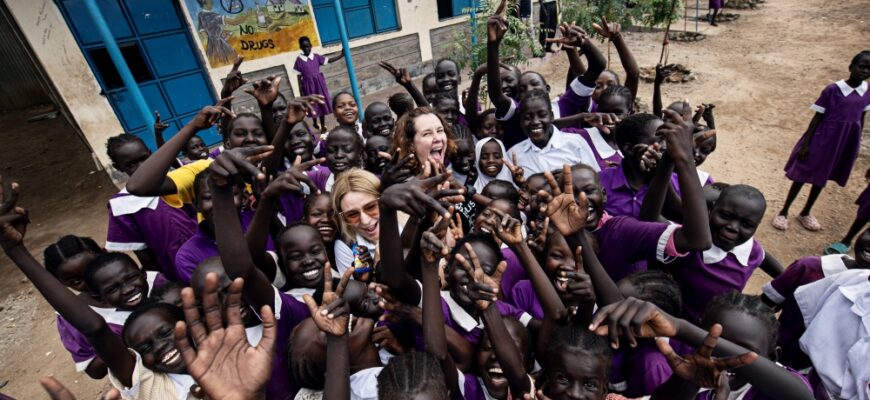Amidst the challenging landscape of Kakuma Refugee Camp in Kenya, something truly remarkable unfolded on Saturday, June 28th. Over 330 young girls converged for a dedicated, in-person chess event – a vibrant celebration that transcended the usual virtual connections and offered a powerful message of empowerment.
This special day was a significant milestone for the Girls Club, an initiative by the FIDE Commission for Women`s Chess. It`s part of the larger Chess for Protection project, which strategically uses chess to support and uplift displaced communities globally. Typically, these girls engage in weekly online sessions, receiving guidance from international coaches and local tutors. These virtual links provide essential structure, help build confidence, and foster a sense of connection to the wider world.
Bringing Chess to Life, In Person
Organizing any large-scale event within a refugee camp presents unique logistical puzzles, from navigating access permissions to coordinating resources across vast distances. Yet, the effort required pales in comparison to the profound impact of showing up physically. An in-person presence sends an unmistakable signal: “We see you. We care. We are here, ready to support you directly.”
The response from the community was overwhelming. The turnout of over 330 girls from various schools within the camp was not just impressive; it was a deeply moving affirmation of the project`s resonance and potential. It proved that when opportunities are presented, the desire to learn, connect, and grow is incredibly strong, even under difficult circumstances.
Rising Like Queens: Life Lessons on the 64 Squares
A highlight of the day was an inspiring session led by Phylis Ngigi, Director of The Gift of Chess. Traveling to Kakuma specifically for the event, Phylis delivered a talk titled “Rising Like Queens: Life Lessons Through Chess.” Using the chess pieces as compelling metaphors for life`s journey, she wove together personal experiences with universal themes of resilience, strategy, and hope.
Her message resonated deeply with the young audience, illustrating how the game mirrors life`s challenges and opportunities:
- The Pawn: Small Steps, Big Dreams – A reminder to keep moving forward, emphasizing the power of persistent effort and the potential for transformation.
- The Knight: Be Bold, Think Differently – Encouraging unconventional thinking and finding alternative paths, even when the most direct route is blocked.
- The Bishop: Follow Your Purpose – Stressing the importance of focus and commitment to one`s chosen path.
- The Rook: Build Strength, Stand Firm – A call to be a solid foundation, both for oneself and for supporting others.
- The Queen: Power and Leadership – Highlighting the inherent strength and capability within each girl, empowering them to lead, protect their goals, and strive for victory.
This session wasn`t just about chess strategy; it was a masterclass in personal empowerment, translating the abstract rules of the game into tangible life lessons.
Equipping for the Future
The growing chess community in Kakuma also received vital practical support. Generous donations included 100 chess sets from The Gift of Chess and 100 digital chess clocks from DGT. These resources were immediately put to use in a large-scale tournament held the very next day, June 29th, involving all refugees participating in the Chess for Protection program, including the Girls Club members.
This event represents more than just a single day`s activities; it`s a foundation being laid for ongoing growth and future possibilities. With continued support and dedicated initiatives like these, there is genuine hope that participants from the Chess for Protection program, perhaps even those who took their first serious steps on the board in Kakuma, could one day represent a Refugee Team at prestigious events like the Chess Olympiad.
The success of the Chess for Protection project in Kakuma is a testament to the sustained collaboration between FIDE and UNHCR. Their shared commitment to inclusion and empowerment through the universal language of chess continues to make a significant positive impact on the lives of the incredible individuals residing in the camp.







